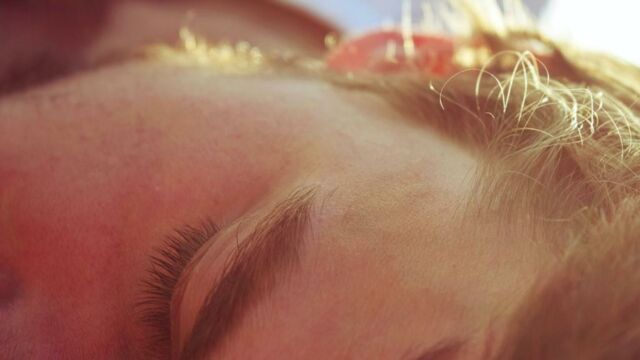On 19th December last year, Mike Krumholz, 21, thought to have a quick nap after a long day’s work looking after children. That 40 minutes nap has changed his life in ways that he could never imagine. Forgetting to take out his contact lenses before resting his eyes, Mike now has a rare flesh eating parasite that could cost him his vision.
Discover our latest podcast
'It’s a constant pain'
The Florida-based young man had been wearing contact lenses for over seven and was quite familiar with the consequences of leaving them on – the odd eye infection or ‘pink eye’. So he was shocked to be diagnosed with acanthamoeba keratitis after that fateful afternoon in December, he revealed in an exclusive interview with Daily Star.
The condition means there’s a parasite that’s feeding away on his right eye, making it impossible for him to continue with his life as a student and worker. He told the news outlet, he has been forced to sit in total darkness for over 50 days now since December to prevent further damage to his eye.
In my bedroom I have the hurricane shutters up and all the lights blacked out. The pain is more from the back of my eye, all the way up [from the back of my head] and goes down [to the front]. It’s like a constant shock, it’s a constant pain. I’m pretty proud of my pain tolerance but I have been screaming in pain.
https://t.co/FCq4xdsZdT
— Mike⚫️🟣 (@KeysToTheBank) February 7, 2023
Hey guys I really really really do not like asking anyone for money ever for anything but If you could take a moment to look at my story I love you guys seriously @DeCostaLacie@Patrickqueen_ if you guys could spread the word #ravensflock 💜
Read more:
⋙ Doctor pulls out a clump of 23 contact lenses from patient’s eye: ‘Never seen anything like it’
⋙ Eye drops linked to lethal infection urgently recalled: ‘Immediately stop using them’
⋙ Man discovers tiny creatures living on his eyelashes
What is acanthamoeba keratitis?
Mike did not receive a diagnosis immediately; it took over a month and visits to several professionals to finally be told that he had acanthamoeba keratitis. This is because the condition is extremely rare. According to the Centres for Disease Control and Prevention:
Acanthamoeba keratitis is a rare disease that can affect anyone, but is most common in individuals who wear contact lenses. The incidence of the disease in developed countries is approximately one to 33 cases per million contact lens wearers.
The health agency warns says if you wear contact lenses, certain practices could increase your risk of getting this devastating condition:
- Storing and handling lenses improperly
- Disinfecting lenses improperly (such as using tap water or topping off solutions when cleaning the lenses or lens case)
- Swimming, using a hot tub, or showering while wearing lenses
- Coming into contact with contaminated water
- Having a history of trauma to the cornea
Sources used:
Daily Star: 'I fell asleep wearing contacts and now can't see – flesh eating parasites ate my eye'
CDC: Sources of Infection and Risk Factors















